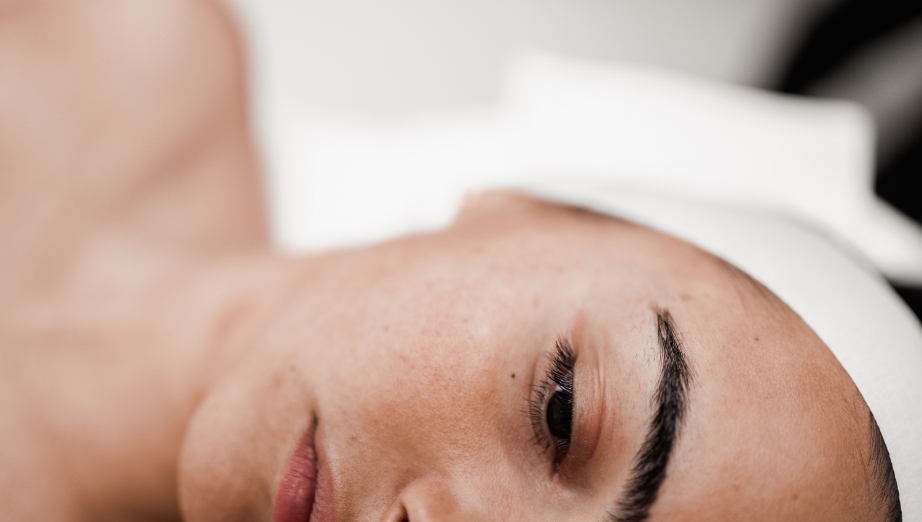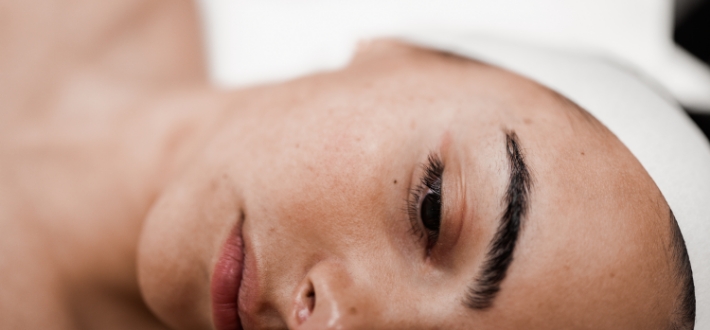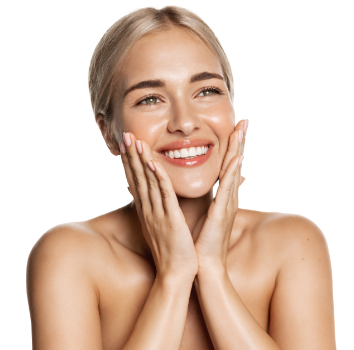What is pigmentation?
Pigmentation refers to areas of skin that appear darker in colour, often contributing to an uneven tone. A common factor associated with pigmentation is sun exposure, which can influence the skin’s production of melanin — the natural pigment that gives colour to our skin, hair, and eyes.
When melanin is produced in response to UV exposure or other triggers, it can appear as darker patches, spots, or freckles.
Since sun exposure is a common contributing factor, understanding how to protect your skin from UV rays is an important part of supporting its overall condition.
At Shellharbour Skin, consultations provide an opportunity to explore the potential causes behind changes in skin tone and discuss a range of professionally guided options tailored to your individual needs.

Causes & symptoms
Areas of pigmentation can appear on any part of the body, but are most often seen in areas frequently exposed to sunlight — such as the face, neck, chest, and shoulders.
Factors that may contribute include:
- Ageing
- Genetics and skin type
- Cumulative sun exposure
- Hormones fluctuations or pregnancy
- Certain illnesses or medications
- Skin trauma or injury
Conditions that create inflammation can also be associated with a pigment response in our skin, including acne, cuts, or burns.
There are also specific pigment conditions such as melasma, which can have a hormonal link and may present as persistent, larger patches of darker pigmentation, often affecting the forehead and cheeks. Managing melasma can be a complex journey, and individuals often explore various solutions over many years. Your doctor or dermal clinician can discuss strategies and options to help you manage the appearance of melasma and understand its potential triggers.
Since pigmentation is often associated with sun exposure, it is vital to be diligent with sun protection. Particularly in the Australian climate, our skin has often accumulated significant sun exposure, even from a young age. Adequate sun protection is a fundamental step in any skincare routine designed to support the skin’s overall health and appearance. protection can help prevent the development of pigmentation, as well as keep the skin youthful and healthy.

Pigmentation consultation at Shellharbour Skin
A consultation is the first step in exploring suitable options for managing pigmentation concerns.
During your appointment, Dr Barney Gordon or another qualified clinician will discuss:
- Your medical and skin history
- Past aesthetic procedures
- Any current medications or conditions that may affect your skin
This information allows your clinician to tailor a discussion plan that prioritises your health and safety, outlines possible approaches, and ensures you have time to ask questions before any decisions are made.
Your Personalised Consultation Plan
Following your initial discussion, your clinician will provide detailed information about the options that may be appropriate for your individual circumstances.
The purpose of this discussion is to give you a clear understanding of each modality — including its intended function, process, and post-session expectations.
Dermalux Tri-Wave LED
During a consultation, we may discuss the Dermalux Tri-Wave LED device, which uses different wavelengths of light.
Your clinician will explain how this technology interacts with the skin, what sensations you may experience during a session, and its potential relevance for supporting skin affected by uneven tone or pigmentation.
The discussion will also include expected short-term effects, such as temporary warmth or redness, and post-session care.
Broadband Light Therapy
Consultations may include discussion of BroadBand Light (BBL) therapy, which uses controlled light energy (IPL).
Your clinician will describe how the light energy interacts with the skin’s surface, what to expect during a session, and how it may be used as part of a broader pigment-management plan.
The conversation will also include expected recovery time, safety considerations, and how to protect the skin following exposure to light-based modalities.
Advanced Chemical Peels
Advanced chemical peels may be discussed as an option to assist in resurfacing and supporting the skin’s natural turnover.
During your consultation, your clinician will outline the different types of formulations — such as alpha hydroxy acids (AHA), beta hydroxy acids (BHA), and trichloroacetic acid (TCA) — and discuss which may be suitable for your skin type.
We will also explain what to expect during application, post-procedure care, and any potential side effects such as temporary redness or mild peeling.
Collagen Induction Consultations
Also known as skin needling, this modality uses fine needles to create controlled microchannels in the skin.
Your clinician will discuss how this process supports the skin’s natural renewal function and may help with texture or tone irregularities associated with pigmentation.
The consultation will cover what to expect during and after the session, possible risks such as temporary redness or mild swelling, and appropriate aftercare guidance..
Cutera Excel V Consultations
We may also discuss Cutera Excel V, a laser platform that can be used to target vascular and pigment-related skin concerns.
Your clinician will explain how the laser energy is delivered, the sensations you might experience, and the importance of appropriate preparation and aftercare.
As with all technologies, suitability and expected experience are discussed on an individual basis, taking into account your skin type, medical history, and goals.
Cosmeceutical skincare
A professionally guided skincare plan can form an important part of discussions about pigment-related skin concerns.
During your consultation, your clinician may outline how certain professionally recommended products are formulated to support overall skin health and maintain the skin’s natural balance.
We can discuss the different categories of products such as cleansers, moisturisers, sunscreens, and formulations containing vitamins or pigment-balancing ingredients — and how they fit into a consistent daily routine.
Your clinician will explain how each product is used, any precautions to take when introducing new formulations, and the importance of ongoing sun protection.
Aftercare and Skin Support
Following any session, your skin will require time to respond to the process. Each person’s experience is unique, and your clinician will explain what you can typically expect.
The recovery period can vary depending on factors such as the type of procedure performed, your skin’s natural response, and your adherence to the aftercare plan.
Aftercare plays a key role in supporting comfort and optimal skin recovery. Your clinician will provide detailed guidance, which may include:
- Protecting your skin from sun exposure with a broad-spectrum SPF.
- Using cool compresses if the skin feels warm or tender.
- Avoiding activities or products that may irritate the skin until fully recovered.
- Following a simple, gentle skincare routine during the healing phase.
During your consultation, your clinician may also discuss professionally recommended skincare options suitable for use after procedures. These can include mild cleansers, hydrating moisturisers, and barrier-supportive formulations designed for temporarily sensitive skin. Any product guidance will be based on your individual skin type and clinical assessment.
Risks, Considerations and Aftercare
All procedures and professional skincare recommendations carry potential risks and considerations. During your consultation, your clinician will review these in detail and ensure you have a clear understanding before proceeding with any plan.
Temporary responses such as redness, mild swelling, or sensitivity can occur as the skin adjusts to treatment or new products. Less common risks, including pigmentation changes, irritation, or allergic reactions, will also be discussed to ensure you are fully informed.
At Shellharbour Skin, all procedures are performed by qualified clinicians — including registered medical practitioners and dermal clinicians — in accordance with professional standards of care. Our priority is to provide safe, evidence-informed treatment options and ensure you feel supported throughout your experience.
If you notice any unexpected or prolonged reactions, you will be advised on when and how to contact the clinic for further review.
Following any session, your skin will require time to respond to the process. Each person’s experience is unique, and your clinician will explain what you can typically expect. The recovery period can vary depending on factors such as the type of procedure performed, your skin’s natural response, and your adherence to the aftercare plan.
Aftercare plays a key role in supporting comfort and optimal skin recovery. Your clinician will provide detailed guidance, which may include:
- Protecting your skin from sun exposure with a broad-spectrum SPF.
- Using cool compresses if the skin feels warm or tender.
- Avoiding activities or products that may irritate the skin until fully recovered.
- Following a simple, gentle skincare routine during the healing phase.
Your clinician may also discuss professionally recommended skincare options suitable for use after procedures. These can include mild cleansers, hydrating moisturisers, and barrier-supportive formulations designed for temporarily sensitive skin. Any product guidance will be tailored to your individual skin type and clinical assessment.
If you have a question, get in touch and one of our staff will be in touch shortly.




